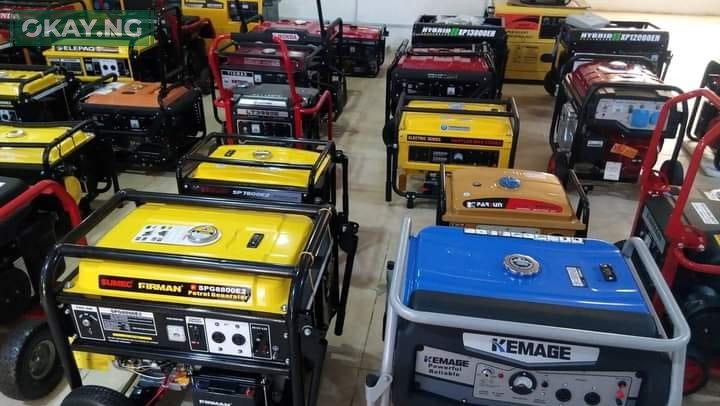For decades, the hum of generators has been the unwelcome soundtrack to life in Lagos State, Nigeria’s bustling economic hub. Now, startling figures reveal the immense financial burden this unreliable power supply places on its residents. According to the Lagos State Commissioner for Energy and Mineral Resources, Biodun Ogunleye, Lagosians spend an estimated N14 trillion annually to fuel the approximately 4.5 million power generators that have become a necessity in homes and offices across the state.
Speaking at the opening of the Lagos Energy Summit, themed “The Journey to Energy for All,” Ogunleye painted a stark picture of a state grappling with a chronic lack of reliable electricity. He highlighted a landmark Energy Access Diagnostic Study conducted by the Ministry in collaboration with SEforALL, which exposed the deep reliance on self-generated power.
“Lagos has an estimated 4.5 million generators spread across residential homes, market clusters, and MSMEs,” Ogunleye stated. “These generators consume 16 billion litres of fuel annually, costing Lagosians about N14 tn at today’s average price of N900/litre. They emit 38 million tonnes of CO every year—a shocking contrast to entire countries like Togo (9.8m), Rwanda (10.6m), and Gabon (10.2m).”
The sheer scale of this private power generation is staggering. Ogunleye revealed that these generators collectively produce an astonishing 21,000 megawatts of power, describing it as “privately, inefficiently, and expensively” generated. The study further highlighted the pervasive dependence, with 72 percent of households owning at least one generator, 94 percent of small businesses relying on them, and 76 percent of market clusters unable to function without them.
“Add to that the vandalisation of power assets, chronic underinvestment, sector-wide liquidity issues, and the plague of estimated billing, and the picture becomes clear: the people have carried the burden of power failure for far too long,” Ogunleye lamented.
However, a potential turning point is on the horizon. Ogunleye emphasized that the Lagos State Government has long been on a path to democratize power, a journey significantly empowered by the signing of the Electricity Act in 2023 by President Bola Tinubu. This legislation grants states like Lagos greater control over their electricity markets.
Following this momentum, Governor Babajide Sanwo-Olu signed the Lagos Electricity Law, paving the way for a diversified energy mix. The state is now actively pursuing Expressions of Interest for gas-fired, grid-scale solar, and captive power projects, with the ambitious goal of injecting 6 GW of power into Lagos within the next three years. Additionally, plans are underway to retrofit 22,000 streetlights across the state to enhance energy efficiency and reduce grid pressure.
“Lagos is no longer at the mercy of what doesn’t work. We are building what does,” Ogunleye declared with conviction.
Governor Sanwo-Olu echoed this sentiment, expressing his dismay at Nigeria’s persistent power challenges in the 21st century. “We believe that no home should remain in darkness, not in the 21st century. It’s a shame for all of us to still have homes that will be in darkness. So, it’s really a call for all of us to do whatever we need to do to make sure that we can turn this around very quickly.”
He outlined a bold vision for Lagos: “Our vision is simple yet ambitious: to make Lagos a 24/7 economy, which is powered by clean, reliable and affordable energy.” He emphasized the importance of affordability and aligned the state’s goals with global climate objectives and Nigeria’s energy transition plans.
Keynote speaker and former Minister of Power, Barth Nnaji, urged the Federal Government to leverage Nigeria’s abundant gas reserves to fuel the nation’s power needs. He commended Lagos State’s efforts as a crucial step towards providing electricity for millions currently without access, a situation he deemed “unacceptable in the 21st century.”
Nnaji drew a comparison with Algeria, a nation with significantly smaller gas reserves that has achieved universal electricity access. He stressed the critical role of natural gas in Nigeria’s energy future, highlighting the country’s impressive 210.5 trillion cubic feet of gas reserves, placing it among the top ten globally.
“If we are not able to produce this and we have it, then we are not going to be able to develop power plants. Then we are not going to be able to prosper as a nation. The GDP growth – we should know that for any country, as the GDP is growing, the energy support must also be growing year on year,” Nnaji asserted.
The Lagos Energy Summit signals a renewed commitment to tackling the state’s long-standing power deficit. The staggering cost borne by residents underscores the urgent need for sustainable and reliable energy solutions. With ambitious plans and a supportive legislative framework, Lagos is embarking on a journey that, if successful, could serve as a beacon of hope for the rest of Nigeria.













